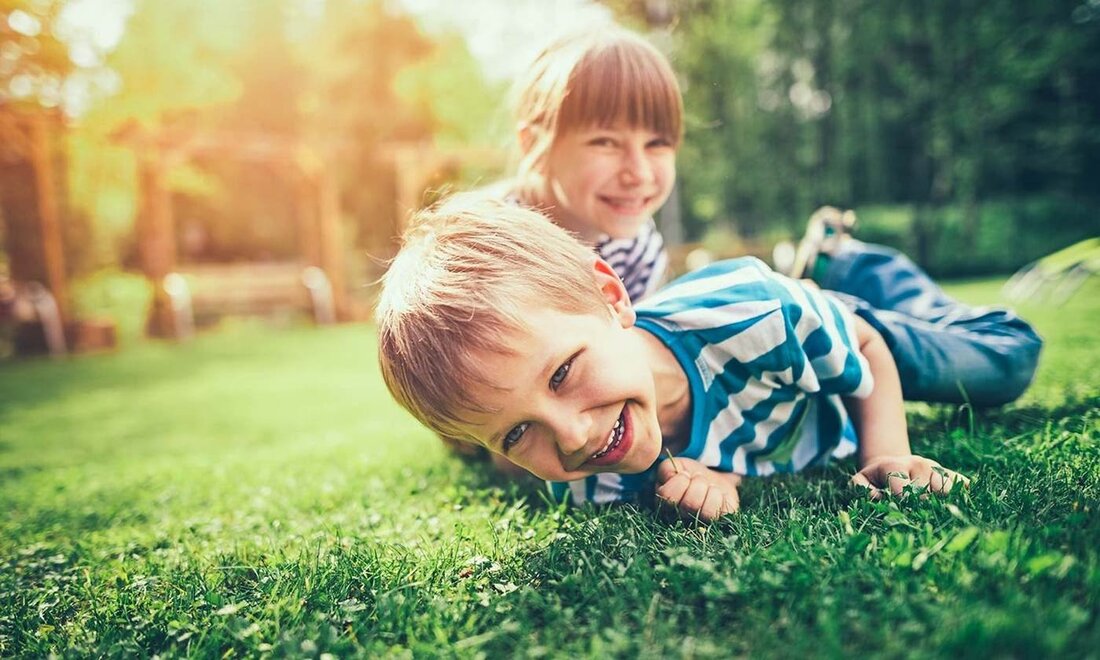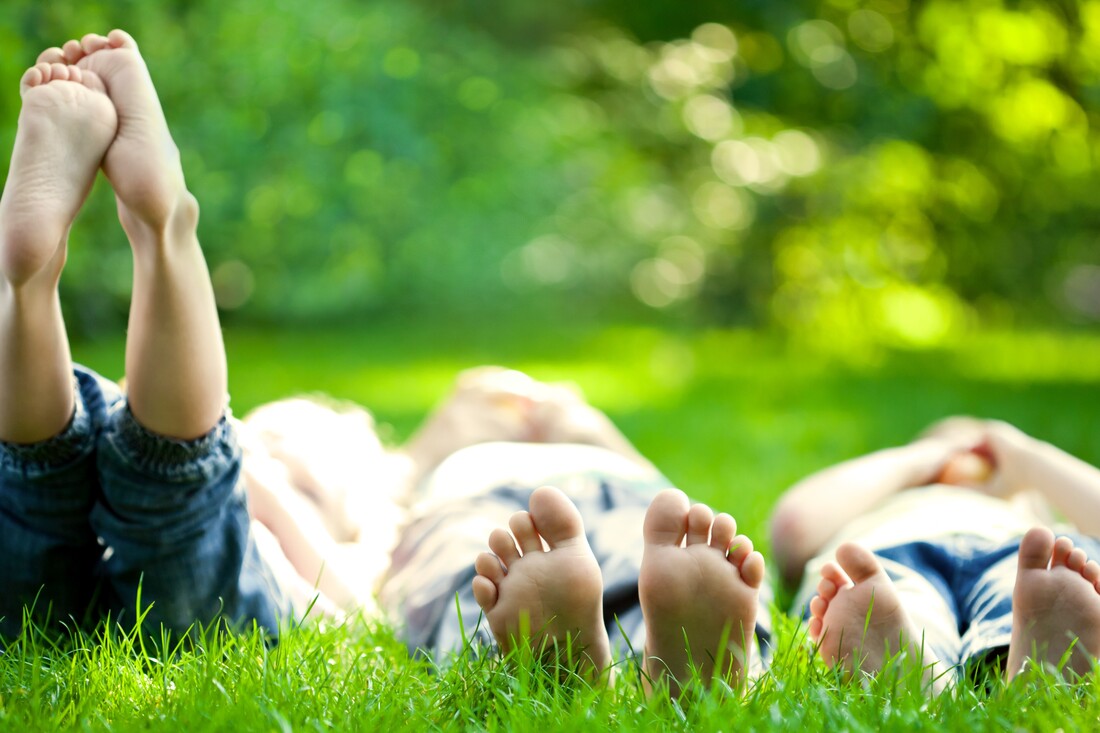|
by First Five Years, interview with Georgina Manning
Meet four-year-old Hannah. On Mondays, Tuesdays and Wednesdays she goes to preschool and afterschool care until her mum picks her up at 5.30pm. On Thursdays, she has swimming followed by ballet. Fridays is soccer and art class at the local library. Saturdays are for soccer games and playdates while on Sundays, it is almost always someone’s birthday party. Now Hannah’s parents aren’t expecting her to become a prima-ballerina or a soccer star or to be voted most popular in school. Hannah’s parents just want the best for her, want her to be happy and fulfilled, and want to make sure that she has every opportunity open to her. Hannah’s parents are feeling the social pressure to keep their daughter busy, but is it actually good for Hannah? It seems we have a current parenting culture of filling every hour of every day with interesting things for our children. In my work with families, most parents say they feel a pressure to keep up with other families that provide these extra activities and feel like they are not doing the right thing or giving their child the best opportunities if they don't put them in a range of activities. The pressure to keep children busy Counsellor and psychotherapist Georgina Manning, Director of Wellbeing For Kids, says there is an increase in children doing more out of school activities now than ever before. “Parents are running children around from activity to activity and filling every spare moment with extracurricular activities,” she says. “It seems we have a current parenting culture of filling every hour of every day with interesting things for our children. In my work with families, most parents say they feel a pressure to keep up with other families that provide these extra activities and feel like they are not doing the right thing or giving their child the best opportunities if they don't put them in a range of activities.” Georgina also notes the pressure the extracurricular activities is putting on families. “The pressure on parents to keep their children 'busy' is enormous and it is not working for the parents and not working for the children. “All it is doing is putting enormous stress on families and families are left exhausted, stressed, anxious and irritable with little time left to just be in the moment or nourish the things that are important.” Georgina says the decrease in free play can also lead to children losing out on valuable life skills and even potentially affect their mental health. “It is really important that children learn to problem solve for themselves and if adults are hovering over their children every minute of every day, we are dis-empowering our children, and this has catastrophic consequences on their mental health. “Children never learn to direct their own lives or think for themselves which erodes the development of self-efficacy.” What is free play?Georgina explains that free play is play which is not directed by an adult in any way, but where children choose activities or games that interest them. “This may include adults setting up the tools so kids can be engaged in their own play such as having art materials, Lego, or building materials around for children to investigate and explore.” Free play, she says, is where “the child directs the play and there is no expected outcome from an adult. Examples of free play are playing in the garden, dress ups, singing, making a bug catcher, creating a cubby house, building with Lego, drawing, playing with toys using imagination, exploring the garden, creating a puppet show, role playing, being silly with friends, blowing bubbles, rolling on the grass, jigsaw puzzles, playing with pets etc.” Georgina notes that screen time is definitely not free play and that screen time actually takes valuable time away from free play. “Research shows that when children are using their imagination or in the state of wonder of their natural environment, just playing for the sake of playing without any expected outcome from an adult, then their brains are refreshed and rested,” she says. “Children need to rest their brains regularly and by taking children from activity to activity, this only stresses children, leaving little time for this vital play time. Not only is this vital for children's mental health and overall wellbeing, but essential for development of social and emotional skills.” Parents can get involved in the play too, says Georgina, as long as they aren’t directing the play, but rather playing with their child and letting their child take the lead. How much free play should kids have?Georgina says there is no set amount of time parents should ensure their children are dedicating to free play. Instead, she recommends looking at the child’s weekly schedule and seeing how much time they really have to play. “I often get parents of primary aged children to reflect on their child's week and create a visual of the week, putting in school time, homework, after school activities and screen time. Then parents can see clearly what time is left for free play. “Parents are often really surprised to learn that there is very little time left in the day for their child to just play and to rest their brain. For preschoolers, having a mix of social interactions with peers and adult play, mixed in with some extra activities is a great mix for this age group." “As preschoolers usually have a lot more free time than primary aged children, then it can be more beneficial for children to have a few extracurricular activities, however, these don't necessarily need to be a class or something that costs money. “Catching up with other families and meeting in the park for a picnic in nature can be an extracurricular activity or going to the local library and listening to story time or choosing books for the week is also a valuable activity. “If children are in day care then having time each day when they get home to just play without adult direction is vital as well as the parent/child playtime.” Should we ditch extracurricular activities completely?Georgina says that extracurricular activities can have their benefits. “I do believe that team sports are very important for children to participate in and this would be one activity I would recommend for children. However, it is vital the focus is on fun, joy, enjoyment and healthy competition rather than the focus on creating sport stars or to be better than other children." “This takes away the fun for children and the experience to look after each other and the chance to develop empathy. It can also create unnecessary stress for children if they are pushed to always be 'better' and 'win' - this automatically takes the children out of mindfully being in the moment of the activity.” Georgina says that activities can help to teach children valuable life lessons. “If children are enrolled in an activity, then they need to see the term or year out in that activity to teach children persistence, grit, commitment and to manage difficult emotions. Particularly if children are in team sports, they have a responsibility to others as well." For children who struggle to make friends or who have become too comfortable spending hours in front of a screen, Georgina recommends that extracurricular activities and playdates can be beneficial for them. Free play ideas for families
14 Comments
DO YOU scrunch your face in frustration when your hear your child mutter the dreaded phrase, “I’m bored”?
Take a deep breath and unclench your fists — guess what? Being bored is actually good for children and not a sign of bad parenting. Psychologists report children are bombarded with constant entertainment through technology, bedrooms full of toys and a schedule of activities that would make the Prime Minister’s head spin. Where is the time to stare vacantly out of the window, daydream, or just sit and think clearly and calmly? Research shows boredom, or the frustration that comes with not being engaged in anything at all, offers great benefits for children in particular. It allows the mind a moment to stop and rest, but ultimately boredom is the pathway to creative thinking and imaginative play. A bored mind, it is argued, will seek something more interesting to do. Dr Helen Street, a social psychologist and creator of the Positive Schools Initiative, which promotes mental health and wellbeing conferences in primary and secondary schools, says children need to experience boredom more than ever before. “We are seeing a massive creativity deficit in kids. “A child’s school life is more structured than ever and from an earlier age than ever before,” Dr Street says. “There is this idea that school is a race and the sooner you get started on it the better you’ll be. Then of course there is the advent of technology, which has taken over our lives in the past decade. It allows children to spend an awful lot of downtime passively engaged with screens and leaves kids with very little time for unstructured play. “As a result we are seeing a massive creativity deficit in kids. People often mistake creativity with having an artistic skill, but that is not what we are talking about here. “Creativity is important because it allows you to actively engage in life, to connect with people and pursue your passions. But to do that you have to learn to be self-directed. An expert says technology is not the sole culprit for a lack of self-directed play in homes and schools. “This is difficult for a child who has grown up having every demand met by their parents and every moment filled in with scheduled, structured activity, with little or no choice or control over what happens next.” The value of boredom is not a new theory, famed philosopher Bertrand Russell pointed out the benefits as early as 1930 in his book The Conquest of Happiness, where he states “a child develops best when, like a young plant, he is left undisturbed in the same soil”. In 1999 a pair of German public health officers were so concerned with the amount of toys provided to children in preschools they introduced a bold plan. Called Der Spielzeugfreie Kindergarten, or the nursery without toys, they removed every toy from a preschool for three months of the year, leaving only tables, chairs and the odd blanket. “One of the best things they can do for their child is allow time for regular free play every day.” The observers noted that on the first day the children sat hesitantly staring at each other, but by the second day they were using the blankets and tables to create castles and cubbies, and the chairs to simulate trains. The teachers reported the children concentrated, socialised and communicated better following this period. Put simply, the theory shows that bored children will seek out a more satisfying activity because the actual act of being bored is so lacking, the mind will naturally start to seek out more enjoyment. It’s easy to blame technology for the zombie-like ways children sit for hours clutching their devices or staring at the television. But Dr Street says technology is not the sole culprit for a lack of self-directed play in homes and schools. “Self-directed play allows children to engage in an activity where they have choice and control over what they do,” Dr Street says. “It allows a child to become so totally engrossed in their activity that time passes without them even noticing. It’s called being ‘in slow’ or ‘in the zone’ and it’s a wonderful feeling but, as parents, we don’t allow enough of it.” Counsellor and psychotherapist Georgina Manning created the program Peaceful Kids, which instructs children on how to achieve mindfulness and meditation in schools, after she noticed a spike in stress and anxiety in children as young as five. The two-day program, taught in schools across Australia, teaches children to be fully present through a range of exercises. “The program teaches kids simple activities like how to notice their breath when their mind wanders,” the Wellbeing For Kids director says. “But it’s also important for kids to engage in informal mindfulness, which is just free, creative play, things like playing with Lego, making robots from cardboard, building an ant farm, dressing up. This kind of informal mindfulness allows them to become fully immersed and it clears the mind. “If a child never has the opportunity to rest their mind — and sleep alone doesn’t do it — it can lead to anxiety, ongoing stress response, perfectionism, generally being unhappy and burning out.” She says the main elements in society preventing boredom is too much technology, over-scheduling activities and having a stressed family life. “Parents often feel guilty if their child isn’t constantly engaged in structured activities like sport, music, dance, drama and tutoring,” she says. “But one of the best things they can do for their child is allow time for regular free play every day.” DOING BATTLE WITH SCREENS MOOREBANK mum Kylie Reynolds remembers playing with friends, riding her bike and swimming in the backyard pool after coming home from school. But the mum to Jay, 12, Kayla, 10 and Lachlan, four months, says a lot has changed from one generation to the next. She says she does daily battle with her children to get them off their screens and play like kids used to. “I think parenting kids today is a lot more complicated and challenging than when I was a kid,” she says. “And as far as I can see, the main reason is technology. Kylie Reynolds with children Jay 12, Lachlan 17 weeks and Kayla, 10, near their home in Moorebank. “Kids have such a dependence of those screens and when I put the hammer down and say enough is enough, they really fight me on it. Kayla will find other things to do when I take the screens away, she’ll colour or read a book or play with toys, but it’s much tougher with Jay.” Reynolds says she worries this generation of children are losing their ability to use their imagination or to be creative because of the dependence on screens. “I remember being bored when I was little but I’d go to a friend’s house to play or swim in the pool, I’d be out all afternoon with my friends, coming home only when dinner was ready. “But I think parents are too scared to let their kids wander too far on their own these days, and I’ll admit I’m guilty of that too. I’m sure the threats that are around now were around back then but it wasn’t in your face like it is now. “The kids have plenty to do in the backyard, we have a netted trampoline, a pool and have had cubbies, slip ‘n’ slides and totem tennis, but they lose interest after a while. “I can see ... how boredom can lead to kids finding more creative things to do. But I do think technology has reduced their interest in other simpler activities.” |
|
PEACEFUL KIDS
|
© Wellbeing For Kids Pty. Ltd. All rights reserved. Suite 159 179 Queens Parade Clifton Hill VIC 3068 Australia [email protected] |


 RSS Feed
RSS Feed
